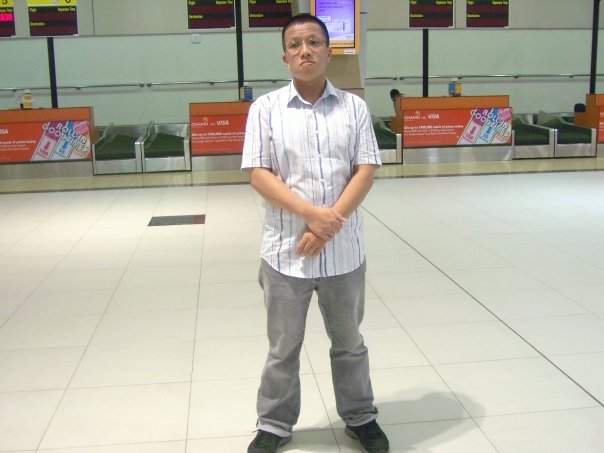“Only those who dare to fail greatly can ever achieve greatly,” Robert F. Kennedy once said. But how do you really deal with the feels and heal when failure really does hit you in the face? We asked our interviewees for tips.
Choo Bin Yong, game designer who runs solo:
I think just looking at the history of how most successful people had experienced failure before they achieved success makes it feel easier to move on from failure instead of wallowing in it.
Jack, who moved from China to Cambodia in the thick of the COVID-19 pandemic:
It’s like I’m constantly telling my daughter, keep things in perspective. We all fail. I’m nobody special, so I’m going to fail, too. And, I use some very self-deprecating humor too.
Pamela Ellis, who survived an ectopic pregnancy:
I try not to be so hard on myself. I survived something that almost killed me, it’s okay if I fail. My self-talk has become more loving and caring. I talk to myself with more compassion and understanding than I would have in the past. It’s okay. Everything will be okay.
Tiffani “Oling” Lim, esports professional:
When that happens I will take some time off, read some books and reconnect with friends; it’ll really helps clear my mind and put things into perspective. Once I’ve recovered and readied myself with a fresh mindset, newly-armed with yet another valuable lesson in life, I can bounce back stronger than ever.
Caren Robinson, who survived a major traffic accident:
When I am experiencing failure it usually includes an emotional breakdown of some sort. The extent of that feeling is highly dependent on the perception of the importance of the potential success that I somehow failed at. I have gotten better about preparing for that potential and back up plans and support around that possibility. I force myself to focus on positive self- talk and focus on the things I have accomplished that day, or in that moment. Positive quotes and memes are helpful. Something else that helps is sleeping. Just taking a nap to escape for a bit. Sometimes it is also helpful to just rage out and vent to somebody.
Jessica, who has Crohn’s Disease:
Recovery time, resting, taking personal time for myself to meditate, sit outside for 15 minutes, take a hot shower, if all else fails talk to my support system, my sister.
Joan, a minimalist:
Talking it out to friends/team mates and working towards plan B. Sometimes, the perceived failure in one’s mind overwhelms the reality of it. What may seem like a failure is usually a huge learning curve forward for you and your team.
Dr Bob Rich, author of many books:
There is no such thing as a failure, fault or defect. There are only learning opportunities. And if someone else can do it, I can learn it. Hmm… that’s except for singing. You really, really don’t want to hear me sing.
Also, Edison once said, “So far, I have found 99 ways that you cannot produce an electric light.” He did get there in the end, didn’t he?
Since 2015, one of my major projects has been to write a science fiction series, and for the past several months, I’ve got serious about pestering agents and publishers about it. Long way to go before I reach 99. I could self-publish, but it’s too good for that. Harry Potter, look out! At my blog, Bobbing Around, I have a long list of short stories, and several are extracts from this series, so you can see for yourself.
The Amateur Trader, self-employed occasional trader:
To remember that if I had the courage to begin, then I have the courage to succeed.
Sy, founder of LUCK-IT:
I remind myself of the long game always.
What about you? What do you do when you meet with failure? Tell us in the comment box below and we’ll add it to the list.
More questions for you to answer in The Wisdom of Crowds series here.
Want to be featured too?
Say hi in the comment box below or tell us here.
If you found this article useful:

























